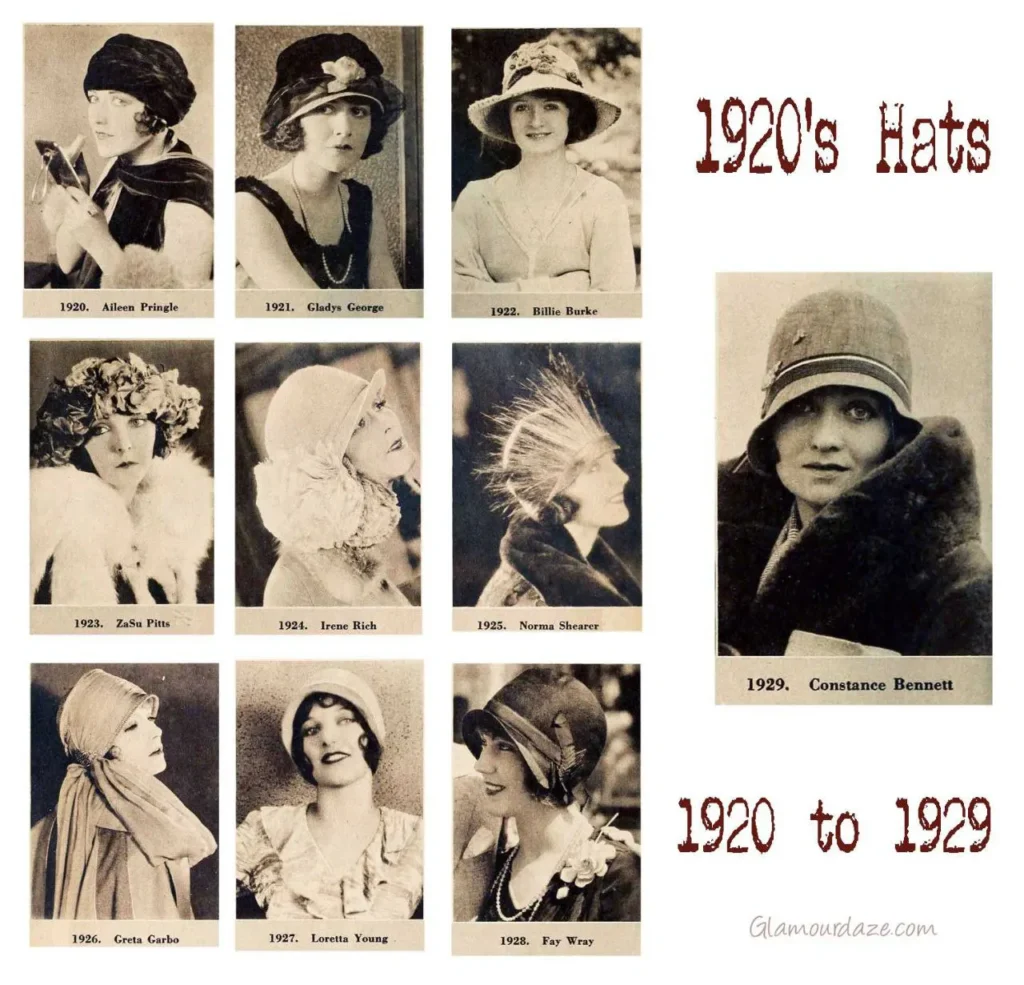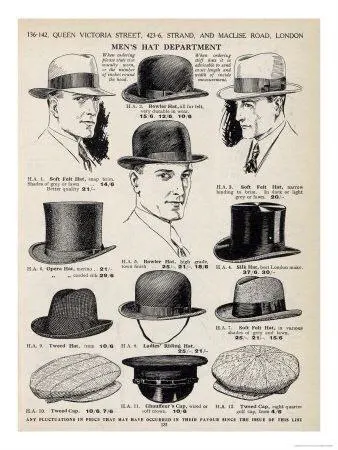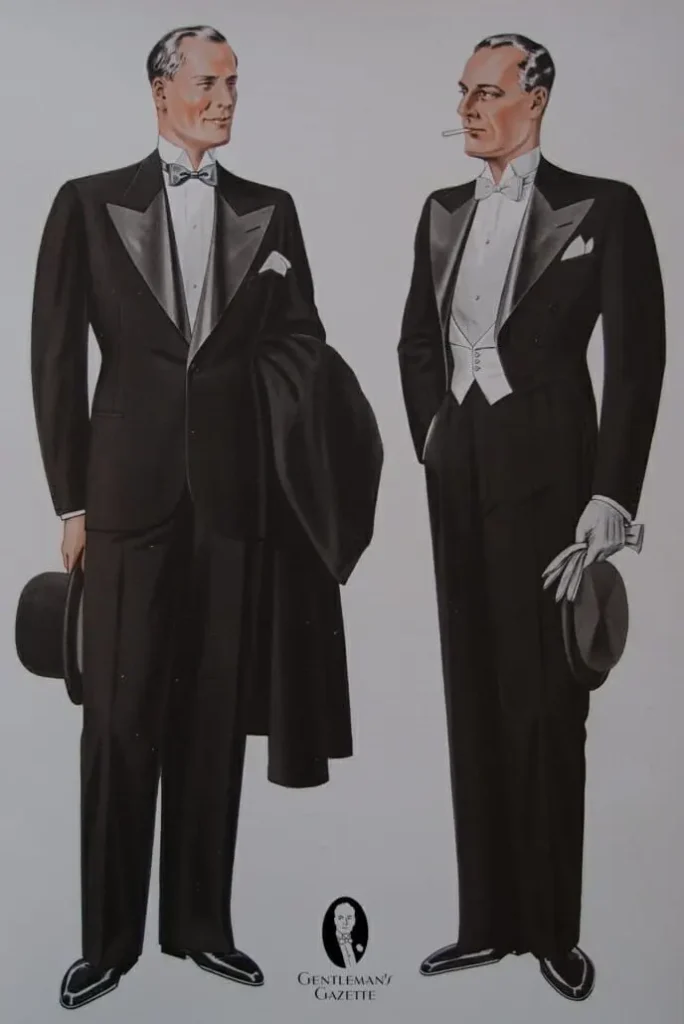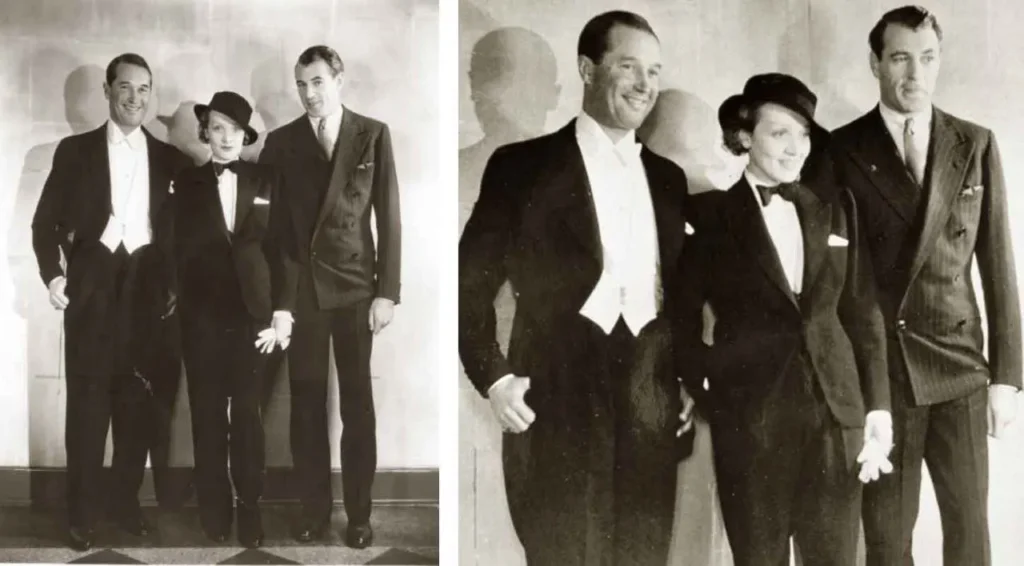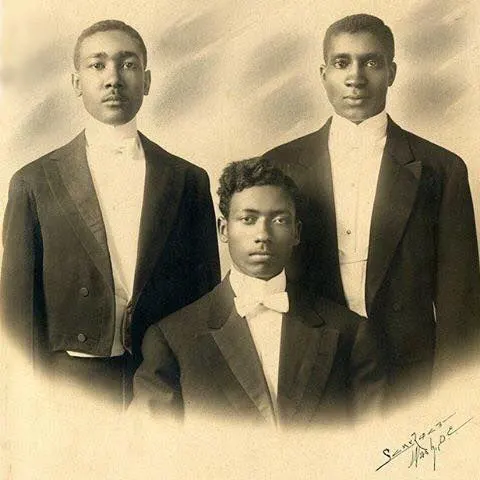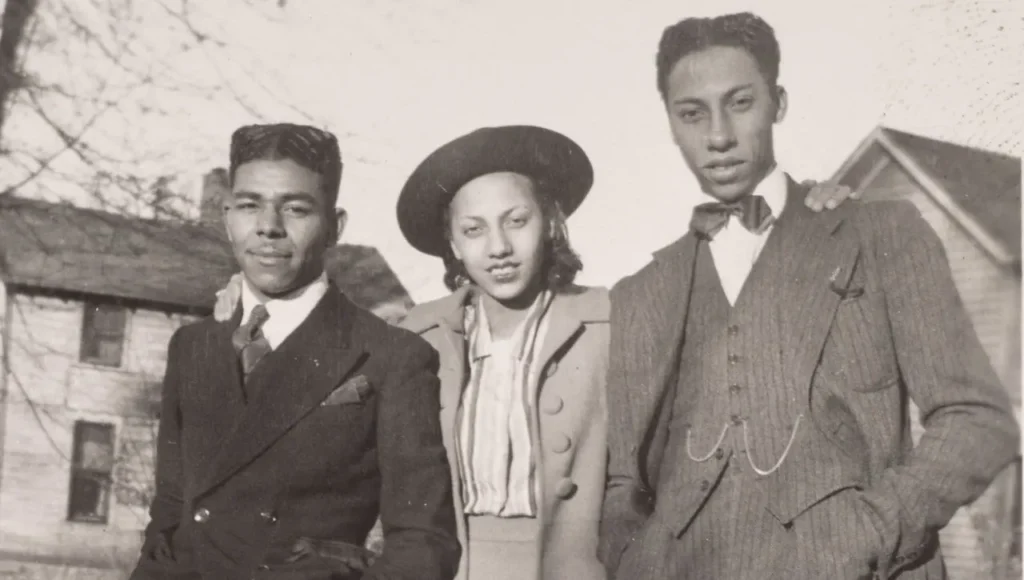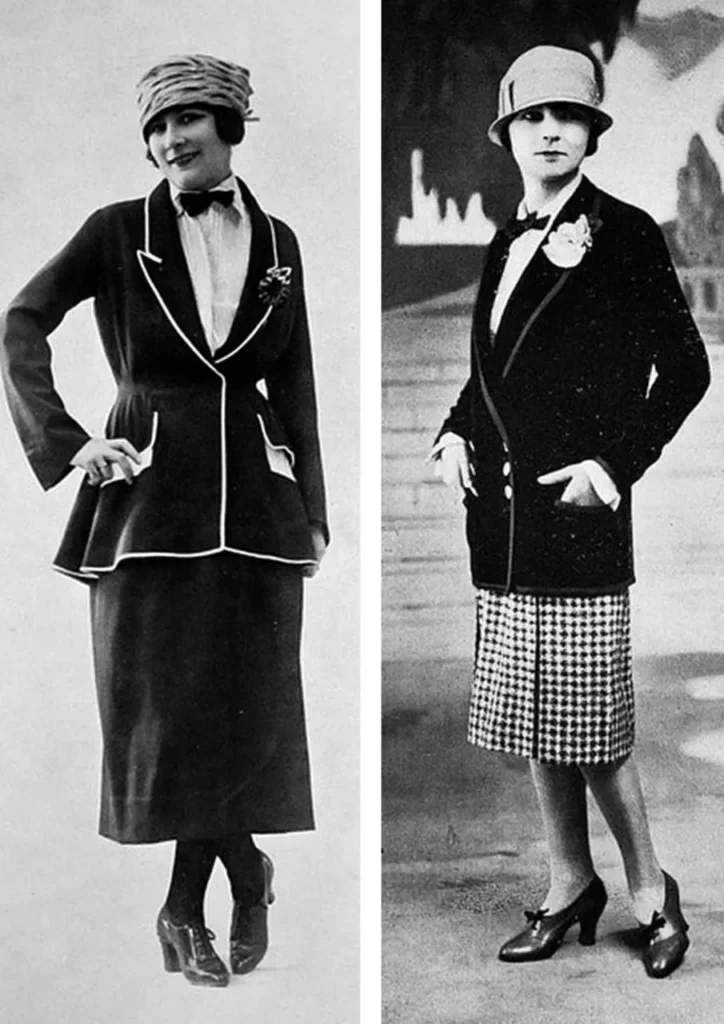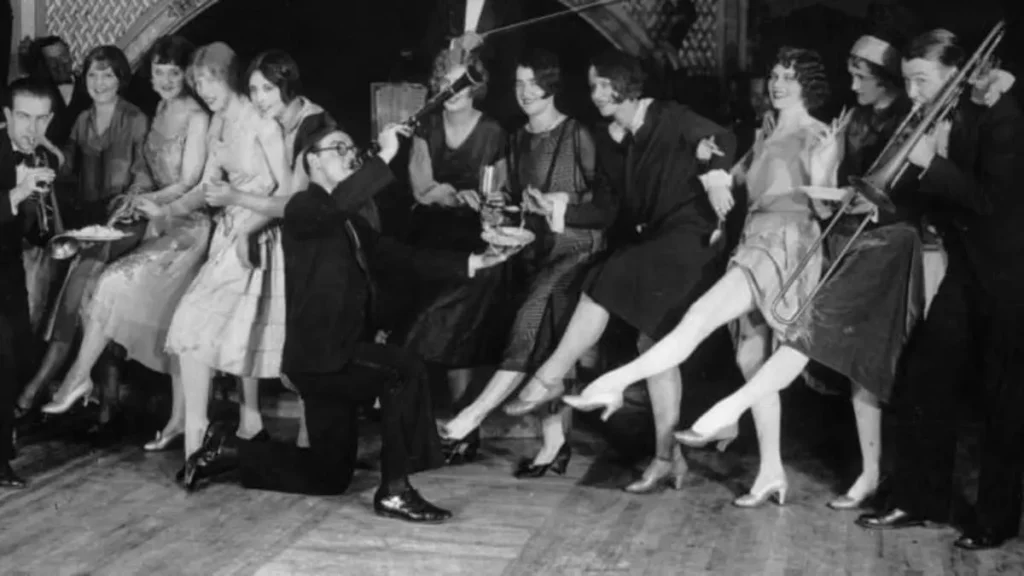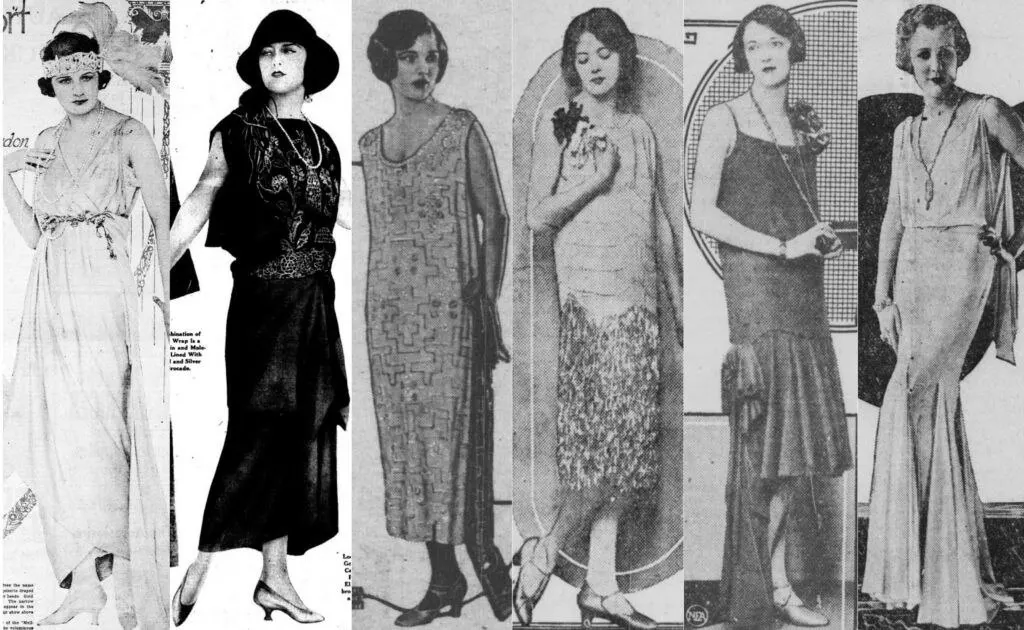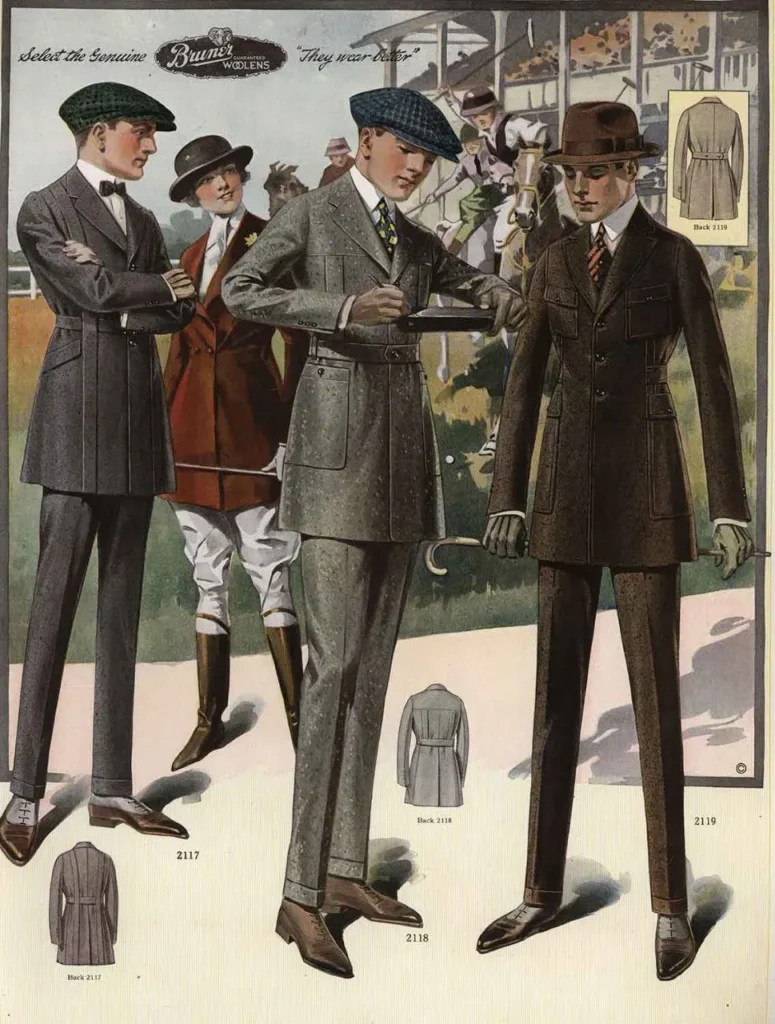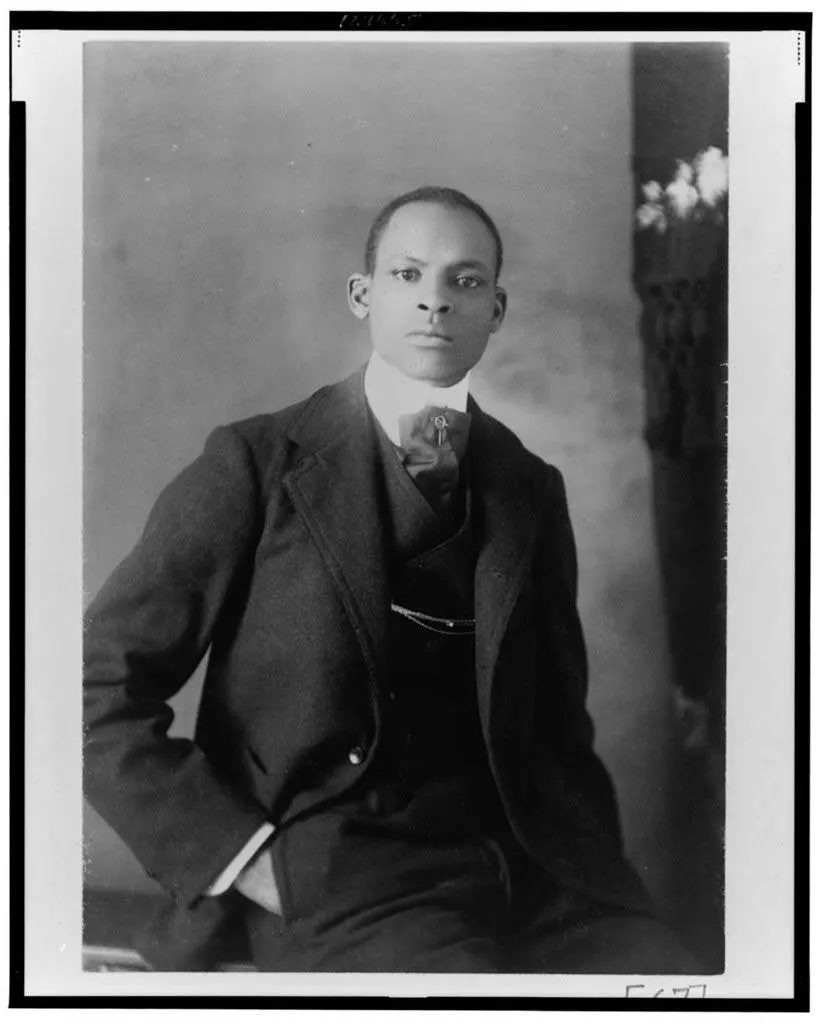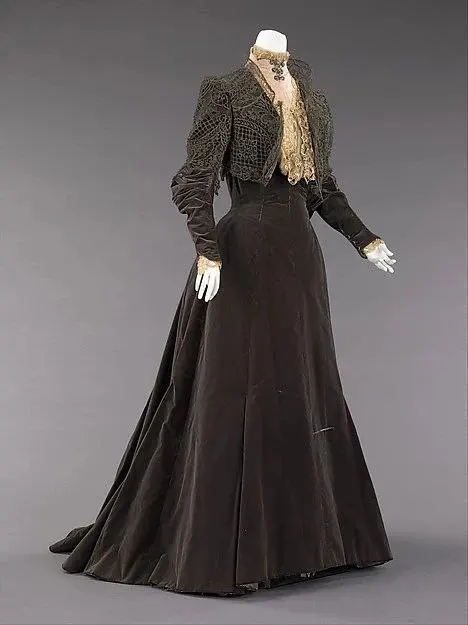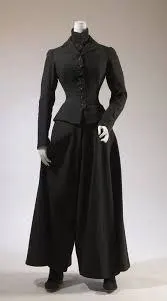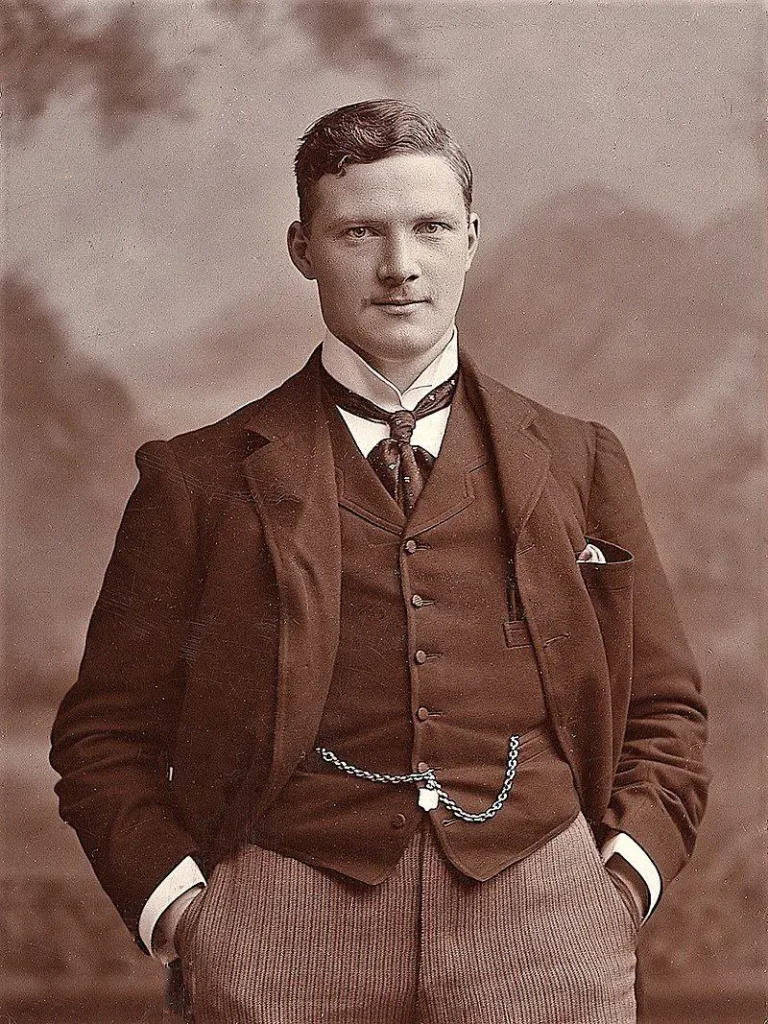
Larp Guide
Foreword
Welcome to the guide to the Larp “Miskatonic University – Shadows Over the Campus”! Here you will find all the information you need to participate and enjoy this incredible experience. If you have any doubts or questions after reading it, please contact us!
This is a living document
This guide may be updated with new content in the coming weeks. Whenever this happens, we will communicate this on our channels (Facebook, mailing list, WhatsApp).
Disclaimer
The setting of the game is inspired by H.P. Lovecraft’s Cthulhu cycle. However, we reject his racist ideas and claim a modern approach to a fictional universe that is everyone’s heritage. We present a critical interpretation of the Cthulhu Mythos and 20th century society.
The characters will not have to deal with the discrimination typical of 1920s academia. There may be a LGBTI+ and BIPOC Rector as well as Professors.
Madness will not be the stereotypical representation of existing mental disorders, but will be connected to the cosmic horrors typical of the setting.
General Information
Miskatonic University is a story about knowledge and its limits, ambition, hatred, fear, love, and power.
We will play the role of professors and students at Miskatonic University engaged in a quest on which the fate of many will depend. We will try to glimpse an ancient truth beyond the veil, where reason must surrender and make way for the unknown and our deepest fears.
All the indicated times and schedules are referred to a 24 hours system, thus “8.30” will correspond to “8.30 a.m.” while “20.30” will correspond to “8.30 p.m.”.
Location: Zamek Kliczków, Poland
Meeting Point: 8:30 Berlin Central Station for the bus transfer, or at 12:30 at the location for those who will travel on their own.
Participants: 113 per run
Program
Day 1
8:30 – Meeting at Berlin Central Station, transfer to location.
12:30 – Arrival at the game location and packed lunch (lunch will not be provided by organisation)
13:30 – Workshops
16:00 – Change of clothes and photoshoot
17:00 – Start of Larp
Day 2
Larp
Day 3
Larp
0:00 – After Party and photoshoot
0:30 – Short Debrief (optional)
Day 4
9:30 – Debrief (optional)
11:00 – Hotel Checkout
11:30 – Bus transfer to Berlin Central Station (arrival at the station approx. at 16:00).
Attention
Travel times from Berlin to the location (and back) may be subject to setbacks beyond our control (traffic, road works, etc.). In addition, check-ins at the airport can take several hours. For this reason, we recommend that you book flights departing at a suitable time if possible.
Workshop
Before the start of the Larp, a series of workshops are planned with the aim of:
- Becoming familiar with the game themes and setting.
- Get to know the other players, especially those with whom you interact the most, and agree on how the various characters will interact.
- How to play one’s character.
- Learning metatechnics.
- Clarify any remaining open questions.
The workshop will be an important opportunity to agree on the rules of the game and play a few hands with ‘open cards’.
Game Experience
This Larp focuses on university campus life during an exceptional event: the opening of the sarcophagus found in the university basement. It is the story of a group of professors and students in search of a truth that has remained hidden for millennia, as they confront their deepest fears.
At Miskatonic University it will be possible to have different game experiences. Some storylines will be more interpretive, others more investigative, depending on the character you choose and what you are most interested in doing. You will always be able to choose whether to throw yourself into daring research or engage in social play. Furthermore, the conflicts and friendships between characters will animate the game, adding emotional depth to your daily routine. The Larp is based on three basic strands: Campus Life, Psychological Horror, and Mysteries to solve.
Campus Life
An important part of the gaming experience concerns campus life. Lectures, workshops, societies, and much more make up the typical day for students and professors at Miskatonic University.
This is the heart of the game and also the space where you can express your character to the fullest in the relational and social aspects, allowing you to experience the routine of a real student or professor at Miskatonic University. Campus life is designed to allow you to explore relationships with other characters; the hatreds, the loves, the rivalries. But also preserve your career, create friendships destined to last a lifetime, bitter rivalries, secret parties after curfew, walks in the park, and mysterious Society meetings. This and much more is campus life at Miskatonic University. See the Campus Life section to find out more.
In short:
- The campus routine is a good part of the gaming experience.
- It is designed to allow you to explore relationships with other characters.
Cosmic and Psychological Horror
In Miskatonic University – Shadows Over the Campus, horror and supernatural elements are treated in a nuanced manner, just like in the tales of the Cthulhu cycle. Our approach to horror is more intimate and psychological than splatter or visual. You won’t find monsters to fight, but a horror that comes from afar, too big and fearsome to be understood by fragile human minds.
The atmospheres we love in the stories related to the Cthulhu Mythos are those in which horror becomes cosmic and in which, through the courage of an educated professor, a shy librarian, or a curious local chronicler, we are shown the ‘true’ texture of reality, in which our entire conception of the world is turned upside down. Think about it, the protagonists of these stories are never heroes, they are people who have to come to terms with the narrowness of their condition. They are almost always destined to die, go mad or achieve a victory that they know is ephemeral.
This is exactly the feeling you will find at Miskatonic University. The style is inspired by Lovecraft’s most mature and terrifying works (The Colour Out of Space, At the Mountains of Madness, The Call of Cthulhu, The Shadow over Innsmouth). A realistic, profound, exciting Larp.
In short:
- Cosmic and psychological horror, not splatter or visual.
- The characters are fragile and human. There are no heroes.
- Victory against cosmic horror, in the long run, is impossible.
There are no monsters to fight.
Mysteries to be solved
Students and professors alike will try to understand the origins of the mysterious sarcophagus by reading ancient and arcane volumes, making careful analyses, studying ancient artefacts during Research, and confronting each other in the study room. You will not find puzzle games or complex mini-games. The investigative experience is mostly about putting together the pieces of a complex and disturbing picture, the enjoyment will be in asking questions about the most complex mysteries.
Lectures and Research will be used to pursue the investigation of the sarcophagus as a group. During these times try to participate and follow the events, so you can collaborate in unravelling the mystery of the sarcophagus! See the Lectures section to find out more.
In short:
- The main mystery is related to the sarcophagus, but there are many others.
- Following the Lectures will help you understand the secrets of the sarcophagus.
- It is essential to collaborate with others to make guesses and share information.
- The investigative experience is primarily about putting the pieces together, not finding them.
What you won’t find
At Miskatonic University you will find no fighting, no physical confrontation. These themes are far from the Cthulhu Mythos stories we want to tell. The atmosphere is based precisely on life on a ‘realistic’ campus, where students and professors are engaged in research.
So you will find no weapons, no rules of combat, or special skills.
Miskatonic University is not a competitive Larp where you can win or lose. The game aims to experience a wonderful story together with other people. There is no competition, no winner. Just people creating a beautiful narrative together. See the Southern Way section to find out more.
In short:
- It is not a competitive Larp.
- The goal is to collaborate with the other participants in the creation of the story.
Game Style
We have put together a short list of interpretation tips. Playing by following these tips will help you have a better gaming experience!
Play Generously
Give others space, and help them in the development of their story arc.
Play On The Details
The campus has its own rules that must be respected. Enjoy those little details that can make your Larp great: a glance during Lectures, a meeting at midnight, a gesture of understanding, a short sentence written on a piece of paper.
Make The Wrong Choices
Imagine you are the character in a Cthulhu Mythos tale. You will not be fearless heroes, but ordinary people in the face of unbeatable cosmic horror. Madness and death could be your destiny, and that is perfectly fine. The design of the game and your storyline may lead you to make choices that are rash, harmful, or that you would certainly not make in real life. If this is the case, do NOT fight it, there is no horror story without such protagonists. Remember there is NO WINNER in this Larp. Do not try at all costs to survive, rather second your characters’ flow to their end.
Follow the Game Strands
Outside of Campus Life, the short intense moments of horror, and the Sarcophagus Investigation there are NO OTHER game strands. It is not the kind of Larp where you can create other game strands (e.g. sabotage Campus Life, hide the sarcophagus, escape).
Follow Game Rhythms
The day at Miskatonic has precise rhythms and appointments. They serve to ensure both storytelling and social development. There are moments when it is mandatory to be there (e.g. Lectures) dedicated to developing the story, and moments of freedom (e.g. Societies, the moments before and after meals) that are instead dedicated to playing the social and relationship aspect of your character. Miskatonic University is a Southern way / New Italian Larp. This means that it follows the principles of the manifesto that you can read HERE. In practice it means that above all we cherish certain principles:
- Miskatonic University is a great shared narrative, a story that you create TOGETHER with other players, NOT AGAINST. If there is a rivalry it is always between characters and NEVER between players.
- Listen to the other players, and have fun with them.
In short:
- Make wrong choices, follow your character and the feel of the Mythos’ tales. Winning is not an option.
- Follow the game: campus life, investigation, and horror.
- Follow the rhythms of the game and participate in the events that give rhythm to the day.
Safety
Our events are safe and inclusive. We believe in a community that embraces diversity and rejects any form of discrimination based on gender, ethnicity, faith, sexual orientation, physical ability, and any other aspect of people’s identity. There is no room for verbally or physically abusive behaviour at our events and anyone behaving inappropriately will be removed.
Miskatonic University is an accessible and inclusive experience, but also an opportunity to address issues that are as important as they are painful. We believe that every character and every story should have a relationship with the reality around us, with its lights and shadows. And we believe that larp can be a safe space for exploration, reflection and even for catharsis.
That is why in Miskatonic University you will not only find all the typical themes of the Cthulhu Mythos but also a critical reflection on the horrors of human history and especially of the 20th century. Oppression, discrimination and persecution of the different and minorities are part of the background of some characters. It is up to each player to decide wheter to play on these themes if they find them interesting and appropriate to their sensibilities, or to keep them muted if they do not feel comfortable with them.
These themes are geared towards providing a deeper and less stereotypical experience of the setting and will under no circumstances be used to impede anyone’s play. For this reason, for example, it will be perfectly normal to have a female dean and LGBTI+ and BIPOC professors. A part of the workshop before the game will be dedicated to this topic and the calibration of the themes. Furthermore, the madness typical of this fictional universe (the so-called descent) will not be a stereotypical representation of existing mental disorders but will be connected to the abysmal horrors of the setting.
A Safety Team made up of experienced, reliable, and empathetic people will be available at all times during the event to offer support in managing your emotional well-being and to support you with practical advice on how to develop your gaming experience at its best.
During the event, you can always opt out and find a dedicated space in case of particularly intense scenes or emotions that you struggle to handle.
There will be game mechanics to emotionally and physically protect our participants. In addition, part of the initial workshops will focus specifically on this issue. If you have any doubts or questions, please contact us.
In short:
- Any gender discrimination will not be part of the game dynamics. However, discrimination and persecution outside the university may be part of the background of some characters.
- During the event, there will be a Safety Team to offer support and back you up.
- There will be specific mechanics to opt out of situations where you do not feel comfortable during the game (they will be explained during the workshops).
Setting
It is 1924. These are the years of spiritualism, of great archaeological discoveries, of Prohibition. The horror of the First World War (The Great War) is still in the eyes and on the flesh of many.
A few weeks before the end of the second semester, a sealed and perfectly preserved sarcophagus was found during renovation work in the university basement. No one knows how that archaeological find ended up walled up down there, where the university’s old archives were probably stored in previous decades.
The sarcophagus is thought to have been brought from North Africa or the Middle East and may have been stored in the vaults as a result of one of the many archaeological expeditions Miskatonic organised in the past. No one knows why it was walled up and then forgotten.
Every year, at the end of the second semester, Miskatonic University has a tradition of challenging its students with exceptional exercises and research to mark the passage of the academic year. This year, on the occasion of this special find, it was decided to focus the Lectures and Research on trying to unravel the archaeological mysteries that the sarcophagus poses. Where does it come from? Whose burial is it?
A unique and special opportunity for students and teachers to test their knowledge in an attempt to unravel the mysteries of the artefact. It will be during these end-of-year Lectures that the sarcophagus will be opened for the first time.
In short:
- It is 1924.
- The larp takes place during the last three days of the students’ first academic year.
- The sarcophagus was found by workers in the basement of Miskatonic University.
- Nobody knows how it ended up there, where it came from, or who was buried inside it.
- The sarcophagus has never been opened before.
Life on Campus
Day #1
18:00 – Rector Speech
18:15 – Lecture (Didactic Unit #1)
18:40 – Break 18:55 – Research (Didactic Unit #1)
20:05 – Professors consulting time
20:30 – Dinner
21.45 – Sarcophagus Exposé
22:30 – Society
00:30 – Curfew
Day #2
08:45 – Breakfast
10:00 – Lecture (Didactic Unit #2)
10:35 – Break
10:50 – Research (Didactic Unit #2)
12:00 – Professors consulting time
12:15 – Prohibited Books Access (study groups 5,7,13)
13:00 – Lunch 14:30 – Lecture (Didactic Unit #3)
15:05 – Break
15:20 – Research (Didactic Unit #3)
16:30 – Professors consulting time
16:30 – Detention
17:30 – Prohibited Books Access (study groups 2,9,15)
18:30 – Academic Senate
18:30 – Prohibited Books Access (study groups 4,6,11)
19:30 – Dinner
21.00 – Sarcophagus Exposé
21:30 – Society
23:30 – Curfew
Day #3
08:45 – Breakfast
10:00 – Lecture (Didactic Unit #4)
10:35 – Break 10:50 – Research (Didactic Unit #4)
12:00 – Professors consulting time
12:15 – Prohibited Books Access (study groups 10,14,16)
13:00 – Lunch
14:30 – Lecture (Didactic Unit #5)
15:05 – Break
15:20 – Research (Didactic Unit #5)
16:30 – Professors consulting time
16:30 – Detention
17:30 – Prohibited Books Access (study groups 1,3,12)
18:30 – Academic Senate
18:30 – Prohibited Books Access (study group 8)
19:30 – Dinner
21:00 – Society
22:30 – Gala
Pillars and Rules
Miskatonic University is an ancient and respected institution. Its members have always relied on gestures and customs that give a sense of belonging and maintain the ‘Miskatonic style’ that so many admire. To go against these principles is not permissible, neither for the students nor the professors.
Pillars
- Miskatonic University is our home. Here there is solidarity, friendship, and a community of purpose between students and professors.
- Knowledge is the thing in question. It is the most important value, it is what is sought here.
- Everyone is a guardian of the Rules. Everyone must safeguard the Miskatonic University code of conduct and the Rules.
Rules
- Curfew. At 11:30 pm the lights are switched off on campus. All students found outside their rooms will have to attend a Detention class the following day. Student Prefects are tasked with making patrols and reporting any infractions. The patrols end at 00:30, after which time it is still forbidden to leave one’s room.
- Respect and Support. Miskatonic University is an ancient and prestigious institution and all those who are part of it must maintain an appropriate demeanour. Appropriate clothes, respect for professors and other students, and polite language are a prerequisite.
- The Academic Senate. It is composed of the teaching staff and deliberates on serious cases of lack of discipline. Disciplinary sanctions may include Detention classes or, in serious cases, expulsion.
- Repeat the year. All students who get a ‘C’ final grade at the end of the year have to repeat the academic year. It’s a real stain on one’s curriculum.
- The Societies. They are recognised and protected by the University as long as they do not break Pillars and Rules.
The world outside the Campus
Although the campus is the epicentre of students’ and professors’ lives, there is a world outside that will make its influence felt through the daily newspaper, radio news, and personal correspondence. These elements may contain information about you and perhaps change the perception of your character. Accept them as cues and let yourself be surprised!
Morning Newspaper
Every morning at breakfast you will find the freshly printed edition of Arkham’s newspaper on your table. In this newspaper, you will find local and international news. Maybe even something about your character or someone you know. Commenting on the news in the morning paper is quite common during meals and break times.
Evening Radio News
The radio news, which is broadcast shortly before dinnertime, offers a social and informative moment. The news is alternated with songs of the time. It is not uncommon for the news broadcast (interviews, dossiers, in-depth reports) to be about you or someone you know.
Personal Correspondence
Some students may receive letters or telegrams from someone from the outside world, friends, parents, etc.. It is also possible to send mail, but it is difficult to receive a reply. At the time, it took several days to receive communications.
Scholarships
Some students at Miskatonic University received a scholarship because they did not have enough money to pay their tuition fees. To keep the scholarship for the following years, scholarship students are required to have an ‘A’ average at the end of each academic year. Otherwise, the scholarship is cancelled. For this reason, scholarship holders are among the hardest working students. Read the section on Metatechnics to find out how to get good grades.
Playing a professor
The teaching staff is the jewel in the crown of Miskatonic University. Only the brightest minds and most capable scholars can have the honour of teaching at this prestigious institution. Often the professors are former Miskatonic students who carry on the values, Pillars, and Rules that have made this institution so famous and prestigious.
If you play the role of a professor, you will be asked to prepare some lectures from hints provided by the organisers. This is because the Lectures will be dedicated to the investigation of the sarcophagus and its mysteries. But fear not, you will have no spoilers! Playing a professor also means having the pleasure of distributing game and letting the students make mistakes, and then guiding them if necessary. Professors are rule-conscious and meticulous in their work, but they are also human beings with secrets and weaknesses.
The Rector is also a professor and is required to conduct Lectures and Research like their colleagues. However, they have a more responsible role. The Rector is a prestigious figure who reflects the credibility of the institution they represent. They also preside over and summon the Academic Senate, where the most important decisions concerning campus and student management are made. Choose this role if you are willing to make public speeches, have a busy day, make decisions and be willing to listen to others, helping them in their game.
Traditionally, teachers sit at the same table during meals.
Petkov, the Disciplinary Professor
This professor, in addition to their normal duties as a professor, is in charge of discipline on campus. Their task is to receive reports from the Student Prefects in the morning and arrange the Detention class for those caught violating the curfew during the night. Other professors can also report to Petkov any students who, due to their inappropriate behaviour, deserve to be assigned to Detention. It is Petkov’s responsibility to manage the Detention class and, if necessary, to report the most serious cases of indiscipline to the Academic Senate to take extraordinary measures against the students. Read the section on Metatechnics to find more about detention.
Pincher (NPC) the professor Master of Ceremonies.
This professor, played by a staff person, is responsible for upholding the traditions and ceremonies of the University together with the faculty and the dean. It is his job, for example, to manage the organization of the year-end Gala, exposé and other formal occasions.
Playing a student
Students are the future of Miskatonic. They are all brilliant in their way and destined for great things. To fulfil their potential, however, they must undergo study and discipline, the sacrifices necessary to achieve knowledge. But they are also people at the peak of their passions and desire for discovery. Sometimes it will not be easy to be a model student or to follow all the rules. Choose this type of character if you want to play on mystery discovery, follow Lectures and Research, and explore relationships with classmates and the relationship with teachers.
Student Prefects
They are students like everyone else, but they are also tasked with overseeing discipline on campus and especially with making night patrols for curfew compliance. They have no special powers, nor can they physically stop those who break the Rules.
In the morning they inform Professor Petkov about which students have been caught violating the curfew and deserve Detention. Their role is assigned at the beginning of the semester, but they can be replaced if they break the Rules or are deemed unfit to fulfil their role. Traditionally there is a Prefect for each Society. See the chapters on Curfew and Detention for more information. Read the section on Metatechnics to find more about detention and curfew.
Student Assistants
They are students like everyone else, but, in addition, they help out the professors. Each Student Assistant is assigned to a professor and helps them with the management of the class (roll call, classroom order, record keeping, task management, and anything else the professor asks of them).
In particular, it is the assistants’ task
- Arrange the class by putting chairs and desks in the correct positions before the start of each lesson.
- Taking roll call and assigning grades (see metatechnics).
- Helping the teacher during the teaching units.
See the section on Lectures to find out more.
The Academic Senate
The Academic Senate is the decision-making rank of Miskatonic University; all professors are members and it is chaired by the Rector. The board meets briefly every day in the afternoon and/or at the proposal of any of its members to make decisions regarding discipline and the Rules in force on campus. The council meets at the proposal of any of its members to make decisions regarding discipline and the Rules in force on campus. All decisions within the Council are taken by majority and an open vote by a show of hands. Abstention during voting is not possible; in the event of a tie, the Rector’s vote counts double. If the expulsion of a student is discussed, a unanimous vote of the Council is required. For a Council meeting to be declared quorate, at least five of the eligible members must be present. A professor may temporarily give a proxy of their vote to another professor or a Student Assistant.
Depending on the topics discussed, the meetings may include ‘open’ sessions in which auditors are admitted and ‘closed’ sessions in which no auditors are admitted.
A special session of the Academic Senate takes place on the last day of the semester to determine the students’ end-of-year averages. In this session, the professors and the Rector evaluate and agree on the final grade by averaging the grades the student has obtained in the various subjects with the starting grade. Since this is not a mathematical average in case of doubt, the professors have discretion in assigning the final grade.
What are the powers of the Academic Senate:
-
Issue new Rules or amend existing ones (open doors).
-
Administer serious cases of discipline and Expulsions (closed doors).
-
Allocate resources and especially evaluate the allocation (and withdrawal) of scholarships (closed doors).
-
Receive and evaluate student requests (discretionary).
-
Share information on findings during Lessons and Research to prepare the Exposé (open door).
-
Establish end-of-year grade point averages (behind closed doors).
Resumes
Every day, the professors and student assistants meet to take stock of the research on the sarcophagus. This meeting is open to all students, but only the professors have the right to speak.
Although maintaining a certain sceptical attitude towards the supernatural is plausible, it is sometimes necessary to believe even what might seem absurd. What is said during these meetings is the fruit of all classes research.
Lectures
Study Plan
Each character has their own Study Plan on their character sheet, consisting of two courses. These are the Lectures they will follow during the game, one in the morning and one in the afternoon. Each Lecture is followed by a Research, held by the same professor. Attending the Lectures is essential to have a good average grade and to follow the developments in the history of the sarcophagus. In the event of absence, the student is required to justify missing the Lecture, in which case the professor will assess whether and what grade to give the student.
List of Courses
Active courses this semester are the following:
Archaeology A (Prof. Pazzi)
Archaeology B (Prof. Pincher) NPC
Anthropology A (Prof. Petkov)
Anthropology B (Prof. Porter)
Art History A (Prof. Petrescu)
Art History B (Prof. Pereira)
Ancient Languages A (Prof. Price)
Ancient Languages B (Prof. Reed)
Each professor gives two Lectures a day to two different classes. Courses with the same name (A and B) are courses in the same subject but taught by different professors. They may therefore differ according to the style of the professor and to the way they are presented. For example, if you have Archaeology A (morning) in your Study Plan, it will mean that you will have this Lecture in the morning, with Professor Pazzi.
Didactic units
Each didactic unit consists of a Lecture and a Research, both delivered by the same professor and covering the same subject. The Lecture is an actual reading by the professor in which theories and information on the subject are explained. Research, on the other hand, is a more shared learning moment in which there are exercises and debates on the subject proposed by the professor.
These end-of-semester Lectures are particularly important because they are decisive for the final average and because, on the occasion of the sarcophagus discovery, it was decided to focus the didactic units on ancient Egypt and on this artefact, to try and unravel the archaeological mysteries it poses. Where does it come from? Whose burial is it?
A unique and special chance for students and professors to test their knowledge of a real mystery of archaeology. It will be on the occasion of these end-of-year Lectures that the sarcophagus will be opened for the first time.
The Lectures
Each Lecture is organised in three stages.
1. Sharing the Study Centre’s further study Outcome (10 minutes)
The professor has the task of going to the Study Centre of Miskatonic University to collect the response of the inquiry that the class made in the Research phase of the previous teaching unit.
2. Presentation of the Lecture Topic (5 minutes)
The teacher briefly presents the topic of the Lecture and the question the Lecture will attempt to answer.
3. Lecture (25 minutes)
The professor gives a lecture on a specific topic related to the subject.
4. Break (15 minutes)
Research
Research is divided into three stages.
1. Practical exercise (20’+ 5 minutes)
The professor proposes a practical exercise. Depending on the type of exercise, the professor may decide to divide the class into pairs or groups. The exercise is also a time to play one’s character and relate to the other students.
2. Presentation of the possible further studies request to the Study Center. (40 minutes)
The professor presents to the class two options the Study Centre offers as in-depth analyses. Each of the two Study Groups in the class discusses which analysis is the most appropriate. It is not necessary to reach an agreement at this stage.
3. Vote to choose the further study request to the Study Center (5 minutes).
At the end of the discussion a vote is taken on the two requests for further study, one head one vote.
The professor does not have a vote and in case of a tie the discussion continues until a second vote, if this vote is also tied it will be the assistant professor who will be the needle of the scales. Once you have chosen a request for further study, it will be your (or your assistant’s) responsibility to fill out the appropriate form and turn it in to the Study Center at the end of the Teaching Unit.
Professors consulting time
Once the class has been dismissed at the end of each teaching unit, the teacher remains in his or her classroom for the time necessary to speak to students who wish to request an audience with him or her.
The Study Centre
At the end of each Research, the professor goes to the Study Centre office to deposit the request for the in-depth analysis that the class has chosen.
To provide the answers, the Study Centre uses its resources (libraries, science labs, etc.), which are out of game. The results of these in-depth analyses must be collected directly in the Study Centre office by the professor before the next Lecture. The results of the analyses may be texts, reports, objects, or photographs, depending on the type of request made by the class.
How to prepare a Lecture (for professors)
Among the duties of professors is delivering Lectures, and conducting and facilitating Research for their classes. If you choose to play a professor, therefore, you will be required to put in some more effort before starting the Larp. It is not necessary that you really know the subject you will be teaching, but if you have at least some rudimentary knowledge or are willing to do some research, everything will run more smoothly. Here is what we ask you to do to play a professor.
Read Up
Once you are assigned a professor character, start reading up on the subject you will be teaching. We will send you in-depth material, web pages, documentaries, and other content that will help you learn more. You should try to get a clear idea of the main topics of the course. Remember that the topics will all be related to ancient Egypt, regardless of the subject you teach. The purpose of these Lectures is to shed light on the sarcophagus from the perspectives of the different subjects.
Prepare five Lectures
We ask you to prepare five Lectures of about 30 minutes each. Don’t worry, we will provide you with the topics for each lesson, the question each Lecture will try to answer, and the guidelines for setting it up. You can indulge yourself in how to conduct the Lecture. You can use visual aids or notes, or you can go at it like a true luminary of the subject. Even if the topic we give you will be fairly precise, you can expand the Lecture and add information as long as it is historically true.
Use a personal style
Remember that you are playing a character and each professor has their way of being. Some professors are non-conformists and prefer to have an open dialogue with their students, perhaps having class outdoors, or walking along the corridors. Others prefer a well lighted classroom, others penumbra. During your Lectures and Research, you decide how to give your teaching method a unique style!
No spoilers
Don’t worry if you fear that you will receive spoilers by playing a professor, you won’t. The discoveries will come mainly from the way you put the pieces of the mystery together with your students and from the analysis provided by the Study Centre.
Study Centre
Remember that taking the analysis requests to the Study Centre at the end of each Research unit, and collecting the results just before your class, is your job. It will also be your job to share this information with the class. Be clear and answer questions. Making sure the students understand what is going on is your responsibility.
How to prepare a Research (for professors)
Research is a more shared and horizontal learning moment. Again, each professor will have to prepare five Research units to be conducted in their classes. Here is how we advise you to proceed.
Prepare five exercises
Each Research includes an exercise in the first phase. The exercises must last approximately 30 minutes and can be carried out by the students in pairs or divided into groups, depending on the type of exercise. The professor can decide whether to form the pairs or groups themself or leave it up to the students. It is important to understand that the students’ exercise is a time for socialising and relating to other students and the professor. This is why we advise against preparing individual exercises.
The exercise must be coherent with the topic of the Lecture. You are free to decide how to do each exercise, but it should have a practical part and not just a theoretical explanation by the professor. Again, don’t worry! We will provide you with examples of exercises to take as a model to help you create your own.
Remember that didactic is also a way of showing your character and bringing out the character of others.
Facilitation
During phases 2 and 3 of the Research, your task as a professor is mainly to supervise the students’ discussion and answer any questions. Remember that in general, Research is a slightly more horizontal and less formal moment than Lecture. Try not to direct their discussion, leave your students free to explore the various options. During the second phase of Research (before the group discussion) it will be up to you to explain what options the Study Centre offers for this Research. We will provide you with what analysis the Study Centre makes available.
Don’t Panic!
If you have any questions or need help planning Lectures or exercises, we will help you out. Contact us and all will be fine!
Go to the Professors Guide containing all the info you need to prepare your lessons. To log in, you will be asked for a password that we have sent you by e-mail (only to the professor). If you have any doubts, please contact us.
Society
The Societies are an important and very old part of Miskatonic University. They have always brought together groups of students and professors with common interests and traits. Each Society has its own goals, interests, and a strong sense of belonging. The university protects the Societies and recognises them as a fundamental part of the campus spirit. Membership in a Society is for life, and brotherhood and mutual help among members is part of the tradition.
The existence of the Societies is NOT secret. What remains confidential is what happens during Society meetings (when they take place behind closed doors). Only affiliates are admitted to the meetings: Novices, Members and Masters.
What are the Societies?
Societies are the core of social life and free play. They are a tool for reaffirming your character’s way of being (which mirrors that of the Society) and playing your relationships.
Each Society consists of about 20 people between Masters, Members, and Initiates. The Societies meet in the evening after dinner (around 21.30), and end their meetings before the start of curfew (23.30). Meetings are held in rooms given for exclusive use, and activities take place behind closed doors; only those who are members of the Societies may attend meetings (including Initiates). For everyone else, what goes on behind closed doors during the meetings is a mystery.
Pillars and Traditions
Miskatonic Societies are based on Pillars and Traditions passed down over the centuries by the members of these groups. Pillars are principles to which each of the affiliates must adhere. Traditions, on the other hand, are actions and activities that Society traditionally performs. This is an indicative list; activities are not limited to implementing the Traditions, but new ones can be invented, as long as they are coherent with the Society Pillars. In the description of the Societies, you will find the description of their Pillars and Traditions.
Rituals and initiations
The Societies are as old as Miskatonic itself and, over time, have established rituals and initiations that are a fundamental part of their worldview. Rituals are performed at the beginning of each meeting and are short formulas that serve to cement the relationship between members and reiterate the principles on which the Society is founded.
Initiation rites must be taken by Novices to become Members. If your character is a Novice, during the first meeting of the Society you must take the initiation together with the other Novices. It is not possible to ‘fail’ the initiation, once you have undergone the initiation rite you become a member. You can find a brief description of the various rites in the Society descriptions. It is the task of the Masters and Members of the Societies to ensure that the rituals are carried out correctly.
All materials needed for Rituals and Initiations are provided by the organization, but you can bring your own materials to enrich the scenes.
The Temple
Each Society has its venue called the Temple. Affiliates can decide whether to carry out their activities inside the Temple or wherever they see fit, including in the Campus garden.
Professors and Society
Professors are also part of the Societies and participate in activities like all other members. During these meetings, it is easy for the hierarchical relationships between students and professors to be different from what happens in classrooms and corridors during the normal Campus day. This is normal, Societies are like ‘free’ places where hierarchies and roles are temporarily suspended and replaced by the internal dynamics of the Societies. This is also why meetings are held behind closed doors, so that everyone is free to express themselves regardless of their role outside the Society. Traditionally, professors cannot have Master roles within the Societies, they are considered Members.
Some of them have been members of the societies since they were students at Miskatonic University.
Hierarchy
There is a hierarchy within each Society. But no affiliate is the “chief” and no one can use the Society as a means of bullying other members. The hierarchy consists of Masters, Members, and Novices.
Master
Each Society has three masters who are the guardians of the Society’s customs and help the Members manage the rituals and initiations of the Novices. They are the promoters of activities, manage the voting (if any), and ensure that the Society remains true to its spirit. They are the promoters of meetings and facilitate all Society’s activities.
Member
Members are the heart of the Societies. They are people who have already been members of the Society for some time and have already undergone the initiation ritual. It is their task to help the Masters in the rites and initiations and to be an active part in organising the group’s activities.
Novice
Novices are young members of the Societies who have not yet undergone the initiation rite. During the game, Members and Masters will help them to go through the ritual and thus actually become Members. Their task is to learn the rituals and traditions of the Society and support the initiation ritual.
In short:
- Societies are a key social element in the Larp.
- Official meetings take place after dinner and are behind closed doors.
- The hierarchy is composed of Masters, Members, and Novices. But there are no ‘chiefs’.
- Professors are also part of the societies with the role of Members.

Lost poets
Passionate
Passionate, creative, free spirits, the Lost Poets are a society dedicated to feeding the sacred fire of life with meetings, poetry readings, artistic happenings, and extravagant parties. Eccentric and unconventional, the Lost Poets are driven above all by the desire to live their existence to the full, or, as they say, to savour the marrow of life. Sometimes their hedonism can become self-pity or self-destruction and bring them into conflict with people or institutions. They are known for their excesses and unreliability.
Choose this Society if you want to play passionate, vitalist, or decadent characters who live the sacred fire at all costs.
Pillars
- The Sacred Fire is what makes us alive. We commit ourselves to feed it with the free expression of our way of being.
- I commit myself to take every opportunity in my life to savour the marrow of life.
Traditions
- We express our true selves in front of the other affiliates when we are among ourselves.
- We indulge in art or any form or expression. We recite poetry, we dance wildly under the moon, and we improvise something that comes from deep within us. We feed the Sacred Fire.
- We organise the legendary Holy Fire party in the woods near the Campus, away from prying eyes. We invite those who deserve it even if they are not in the Society.
- During a public occasion we let our barbaric ‘yawp’ be heard!
- We organise exhibitions, happenings, and covert performances.
Initiation
Initiation takes place in the forest, in front of a bonfire that we light: it is the sacred fire. Every Novice and Member, including the Masters, must come dressed not according to the convention, but according to what is inspired by their soul. There is no limit to the freedom of expression; one may wear make-up or dress eccentrically. When the Society is gathered around the fire the Novices are blindfolded and then spun around, each Member taking care of a Novice. Finally, all together shout a liberating and barbaric ‘yawp’! Then, standing around the fire, everyone reads a text they have prepared for the occasion.
Opening ritual
The Masters light the candle of the sacred fire. In turn, each affiliate makes the gesture of grasping the fire with their hand, then clenching it in a fist and bringing it to their heart while repeating: “I guard the fire”.

Knife and Veil
Enigmatic
Creepy, mysterious, and enigmatic, the affiliates of the Knife and Veil Society have a reputation for being lovers of parapsychology. Their aspiration to investigate reality beyond the sensible world has caused them more than one problem in the past with the Academic Senate and has convinced the members of this Society to establish a strict security code. Some claim that their recklessness in pursuit of knowledge drives them to immoral or occult practices during their meetings.
Choose this Society if you want to explore the occult, parapsychology, and unofficial sciences.
Pillars
- There is a profound truth that the senses do not grasp. We pierce the veil of Maya to see beyond sensitive reality.
- I commit myself to stay listening and catch the Signs where others do not see them. I believe.
Traditions
- We share information, ideas, theories, and suggestions in the field of occultism, parapsychology, and the unofficial sciences.
- We conduct experiments in occultism, parapsychology, or other sciences in our Temple or wherever is more appropriate to us affiliates.
- We do not share the knowledge of the spirit world with those who are not affiliated, unless it is a matter of life and death.
- We renew the bond with the spirits of past students and lecturers.
- We organise a ritual vigil at the Campus cemetery.
- We protect the Miskatonic Campus. We have been building and spreading protective amulets for centuries for the salvation of our beloved university.
Initiation
The Novices are blindfolded in the Temple, then each Member and Master chooses one and leads them, outside the Temple, on a symbolic journey. Each Member can decide where to take their Novice. It is the Member’s responsibility to ensure that the Novice is always safe by guiding them with their hand and voice. Then when the Member deems it appropriate they will release the Novice’s hand and leave them alone by whispering in their ear: “You are passing through the veil”. They then take the Novice by the hand and lead them back to the Temple.
Opening ritual
All the affiliates stretch out a sheet of light cloth, and one of the Masters tears it open with a knife. They all repeat in chorus: ‘The veil is torn’.

Enigma
Nosy
Nosy, obstinate, and bordering on paranoid, the affiliates of this Society are passionate about the unsolved enigmas on Campus. Convinced seekers of truths that lurk in Miskatonic’s past and recent history, this Society is made up of students with a passion for enigmas and mysteries to solve. They made local headlines a few years ago for solving the case of an allegedly suicidal professor that led to the conviction and imprisonment of one of the Campus custodians.
Choose this Society if you are fond of enigmas and want to shed light on some mysteries of Miskatonic University.
Pillars
- Truth makes one free. A mystery is a challenge that allows us to look inside ourselves.
- I commit myself to defend the truth, to unravel the mysteries of the present and the past.
Traditions
- We read the Book of Enigmas that we inherited from the affiliates who came before us.
- We choose Enigmas to solve and give all ourselves in doing so.
- We share with other affiliates the theories and views on the Enigma that we are unravelling. It is a team effort.
- We write in the Book of Enigmas what we do not understand, so that the affiliates of the future can unravel these mysteries.
Initiation
When the Society is gathered in the Temple, the Members and Masters each choose a Novice whose initiation they will supervise and show them a key. Then while the Novices remain in the Temple under guard, the Members go out into the cloister of the Campus and each hides their key somewhere. They then return to the Temple and ask their initiate to find the key in the cloister. Each Member guides their initiate with hints and advice, while the initiate searches for the key.
Opening ritual
All the affiliates clutch their locked padlock in their hands. Then they repeat in chorus “The world is the Lock, and I am the Key”. Then each person opens the lock on their padlock, the padlock is kept open throughout the session and gets closed when the meeting ends. Each affiliate always keeps their padlock with them.

Mind’s Eye
Emotional
Deep, emotional, reflective, the affiliates of this Society are passionate about the mysteries of the psyche and are committed to investigating the depths of thought and mind. Adepts of Freud, Jung, and especially Moreno, these students are convinced that there are many answers within us that we cannot see until we have a deep understanding of our deepest and sometimes darkest sides.
Choose this Society if you want to probe the human mind, try psychodrama, and explore inner worlds.
Pillars
- The world and the truth are within us. Access is from the psyche.
- I commit myself to travel within my mind, to be an explorer of my psyche and that of other affiliates.
Traditions
- We practice psychodrama in our Temple or wherever we see fit.
- We follow the practices of the Book of Psyche that we inherited from the affiliates who came before us.
- We subject ourselves to practices that expose our subconscious: hypnosis, analysis, soliloquy, etc.
- We share our emotions and moods with other affiliates. No matter how painful.
- We test ourselves to explore the limits of our traumas.
Initiation
Masks are distributed, the Novices wear them on their heads but not on their faces. The Members and Masters wear them properly. In the Temple or wherever we see fit we arrange ourselves in two concentric circles, the Novices in the inner circle, the Members and Masters in the outer circle. A Member leaves the circle and goes behind a Novice and asks them “what is your name?”. The Novice replies “I am (name)”, all others repeat the answer “I am (name of the Novice)”, then the Novice puts the mask on. This is to be repeated for each Novice.
Opening ritual
When an affiliate goes to the Temple for the beginning of the meeting, they must wear their mask from the moment they leave their room. Students of the Mind’s Eye Society are allowed to walk around the campus wearing their masks on their way to the meeting.
Once all the affiliates have arrived at the Temple the Masters say:
“Look at me with my own eyes”, they all repeat in chorus, then take off their masks and begin the meeting.

Goliard’s Thorns
Troublemakers
Troublemakers, the affiliates of this Society are mostly known for their non-conformist and sometimes rebellious style. Famous for their sense of justice and honour, as well as for their ‘pranks’ often used to right real or alleged wrongs, they are one of the Societies most affected by disciplinary measures. Some claim that they are just a group of pranksters, while others believe that underneath that appearance they are a kind of vigilantes with a precise code of honour.
Choose this Society if you want to get into trouble, organise pranks and shenanigans, or protests.
Pillars
- No matter where the world goes, I will always be myself and do what I think is right.
- I commit myself to take every opportunity to right a wrong, unravel hypocrisies or make a mess. I can do this while having fun.
Traditions
- We get into trouble, for a cause or just for the sake of it or to test people.
- We avenge anyone who has been wronged.
- We do stunts to test our courage.
- We expose hypocrisies and injustices by making them public and ridiculing them.
- We organise clandestine parties.
Initiation
In the Temple, or wherever it seems appropriate, Members and Masters sit with an empty glass in front of them. The Novices are standing at the other end of the room and hold a bottle of water, wine, or any beverage. The first Novice takes the bottle and pours it into the glass of a Member of their choice. They must say why they chose to give that Member a drink. Any reason is acceptable. Then the Member drinks and the novice stands aside. When all the Novices have poured their drinks, they all toast together: “This is our justice. A laugh will bury you all”.
Opening ritual
When all the affiliates are present they pour each other a drink. When everyone has a full glass they toast together: “This is our justice. A laugh will bury you all”.
Note: it is not compulsory to drink alcohol, a non-alcoholic drink can also be used.

Order 322
Elitists
Mysterious, ambiguous, and traditionalist, the affiliates of Order 322 are often from the oldest families in Arkham. Inspired by the legendary figure of Jeremiah Orne, founder of Miskatonic University in 1690, first Rector of the university, and founder of Order 322 itself, the affiliates of this Society have set themselves the task of protecting the traditions of Miskatonic, including that of the legendary Alchemy course that was closed shortly after the university was founded. Some murmur that this Society has a rather extensive network of influence, which gives it a certain weight in the decisions made by the Academic Senate.
Choose this Society if you want to seek power and knowledge, influence decisions in high places, or lobby.
Pillars
- True Knowledge and Personal Transformation are the goals of the Order. Nothing is more important or valuable to a Member.
- I commit myself to take every opportunity to get closer to True Knowledge and cherish the traditions of Miskatonic University.
Traditions
- We practice alchemical knowledge, which is both practical and symbolic. It is the only way to strive towards the Great Architect.
- We follow the instructions of the Alchemical Book to strive for the obtainment of the Philosopher’s Stone, the supreme knowledge.
- We help and support our affiliates in their ambitions.
- We build a network of influences to support our actions.
- We watch over the oldest traditions of Miskatonic. If necessary, we put pressure on students and professors to achieve our goals.
Initiation
All the affiliates are in the Temple. It gets dark in the room and only the ritual candelabrum remains lit. All bystanders, Members, Masters, and Novices, write their innermost secret on a sheet of paper, anonymously and concisely. Then the Masters shuffle the sheets of paper. They distribute one to each of the affiliates. Then they stand in a circle and read them out loud one at a time. Each time a leaflet is read, it is then burnt. When the last sheet is burnt the Master asks to repeat in chorus: “I am now transformed and belong to Order 322”. The Masters hand over the thought stones to the Novices. They are to be kept always with them.
Opening ritual
When an affiliate enters the Temple, they place their stone on one of the two plates of the scales in the room, taking care to keep the balance between the weights. The stones remain on the scales throughout the meeting. When all the affiliates are present, the Masters ask them to repeat in chorus: “I am now transformed and belong to Order 322”. Then the session begins. Before leaving the meeting, each affiliate takes a stone, but not the one they placed on the scale upon arrival.
Metatechniques
Study Groups and Access to Prohibited Books
Each Study Group will have an opportunity during the game to access the Prohibited Books Section. It will be the professor who will indicate, at the end of a Didactic Unit, which Study Group is entitled to have access to this jealously guarded area. Each Study group is composed of seven or eight students (some will also include a professor).
The reading rooms of the forbidden manuscripts are set up like small black boxes: with suitable lighting and background music. And a cursed book on the table. These are extremely ancient volumes that contain knowledge that can change one’s idea of reality and of the forces that surround us.
A book like this will test the sanity of those who read it. To experience such a profound and alienating emotion, we have designed a metatechnique.
All members of the Study Group will sit at the table in front of the book, and one of them will start reading aloud. Then suddenly they will be transported to another time and space as if reading the text absorbs them completely.
You will play while sitting and with your eyes closed, guided by music and sounds. It will be like living a dream. You will encounter terrible creatures or demons of the past, you will have to make difficult choices. But perhaps you will also be able to gain a shred of truth about the world around you. At the end of the reading, those who wish to, can enact their descent. You do not have to enact it right away, but you can choose the moment that seems most suitable to you, even in the hours and days that follow. Knowledge has a cost.
This metatechnique will be explored in depth during workshops before the start of the game.
Curfew
Every night at 23.30 a Curfew is imposed on the Campus (including the park) and no one is allowed to leave their room, for reasons of public order and decorum. Starting at 23.30 and until 00.30, the Student Prefects will patrol the Campus in pairs to check that the Curfew is respected.
Student Prefects cannot use force or any other coercion toward those who break the rules. They merely mark in their notebooks the name of those they have seen transgressing. If you are stopped by a Student Prefect or intimated “Halt!” you are obliged to stop and give him your name. Then you must go back to your room and wait at least a few minutes if you want to try to leave again. All students who are found during curfew will have to attend detention class the next day.
Professors do not suffer detention, but if they are found in violation of curfew they will have to give a plausible excuse and return to their room.
The mechanics of the curfew serve to make the typical midnight escape exciting. This does not mean that you have to stay in your room, but that you have to take some risks if you want to experience this thrill.
WARNING: This is a metatechnique, that is, a real rule of the larp; respect it and do not “cheat.” If a prefect stops you you MUST tell them your character’s name and go back to your room. It is part of the fun to end up in detention!
The Night at Miskatonic University
Students and professors know that the night at Miskatonic University is the best time to do anything that would be difficult or disreputable (without exaggeration) during the day. A chance to interact with other students and professors, away from prying eyes.
During night time, if you manage to avoid the prefects’ rounds, you can find a world of stimulating encounters to take part in, all you need to do is talk to the right people!
If you want to have a séance, to contact a person who has left this world, talk to someone from the Knife and Veil: the members of this society will surely be able to help you and prepare a private séance during curfew for you.
If you would like to discover the hidden meaning of the dreams that haunt you, you could talk to someone from Mind’s Eye, as rumour has it that they organise Oniromancy sessions during curfew for this very purpose. Or perhaps you would like to remember something you have forgotten, but whose latent memory, just beyond the edge of consciousness, haunts you: then a night hypnosis session is for you!
If you feel like relaxing, having a chat and maybe listening to some good music (at a low volume so as not to get caught by the prefects!) while sipping some forbidden alcohol and gambling, try contacting a member of Goliard’s Thorns… Apparently, small speakeasies are often set up during curfews! And who knows if it’s not also a good time to ask the Thorns to support you in your righteous revenge on someone who has wronged you…
If you want to indulge in a taste for poetry or the beauty of art, get invited to a Lost Poets poetry symposium, or even gain access to their traditional end-of-year exhibition, during which the tales of older students relate how you can taste the marrow of life!
If you want to throw yourself into the defence of the weakest, or assert your rights as a student, it seems that lately meetings of a student committee calling itself the Student Bolshevik Soviet are also taking place on campus… If you will be able to approach them, maybe you can attend one of their meetings!
Or maybe you can challenge some members of the Order to a game of billiards, rumour has it that late at night they bet secrets in exchange for favours… But maybe that’s just hearsay.
Is there a mystery that haunts you? Something in your past that has remained obscure or something that doesn’t sit right with you at the university, but you don’t know how to find out the truth? That’s what the Enigma Society is for! They are the help you need to shed light on something mysterious.
Or maybe you just want to take a walk under the stars with your best friend, telling each other in peace and intimacy what happened during your day. Night-time activities at Miskatonic University can be many and varied! Get involved in the many possibilities and feel free to create your own, with the people you have the most affinity with or those you know less, but feel you have something in common with!
Detention
Detention is a punishment given to any student who violates the Curfew or commits transgressions considered ‘minor’. Different punishments and even expulsion may be ordered for serious infractions of Campus Rules, but these are subject to the judgement of the Academic Senate.
Detention, on the other hand, is administered by Professor Petkov, who in the morning receives a list of all those found in violation of the Curfew from the Student Prefects. During detention, students are required (by regulation) to obey the instructions of Prof. Petkov.
The Detention class is a special class held by Professor Petkov or another professor designated by them, in which activities designed to re-educate the student will be offered. The activity program is entirely in the hands of the professor who runs the meeting. The meeting is held at 16.45, or any other suitable time, and lasts approximately 30 minutes.
The Detention class is also a great place to meet other students who are a bit off the beaten track!
One can also be sent to Detention on supervisory warning of a professor, for disciplinary or other reasons at their discretion.
This metatechnique will be explored in depth during workshops before the start of the game.
Average Grade
All characters have their beginning Average Grade indicated on their sheet. This grade indicates the performance, the grade, that the student has achieved until now. There is no grade for each subject, but a single Average Grade that establishes overall how hard the student has worked at studying.
This grade may change during the Larp, it’s the last days of the Academic Year after all!
The grade does not involve a mechanic, and it is not the professors who decide your grade, it is you! It is a narrative element that you can decide on, based on the character you have chosen to play.
To indicate to the professor that you would like to receive the highest “A” grade for that Lecture, sit in the first row during Lectures. If you sit in the second row you will get a “B” and in the third row, you will get a “C”, the lowest grade. Thus, the highest grades will often go to those who arrive on time and take the best seats, like model students.
Feel free to have low grades and even risk flunking out. After all, it is your character, you choose how to play them. Some characters need high grades to get ahead or to keep their scholarship. Those who get a “C” average will have to repeat the year, and this will weigh on their curriculum. That said, it doesn’t matter whether you win or lose, it’s your story arc, and you can handle it however you want.
P.S.: professors and organisers will always be ready to listen to your needs and correct the average by raising or lowering it, if that helps your playing experience.
This metatechnique will be explored in depth during workshops before the start of the game.
The dream world and the supernatural
During the larp, there will be times when the boundary between our world and the supernatural world becomes thinner. In this case, you may witness the appearance of unexplainable phenomena. In this larp, there is no combat involved, so in such situations we ask you to interpret your character’s fear and dismay, perhaps becoming paralyzed, or seeking a way of escape. These aspects will be explored during the pre-game workshop.
This metatechnique will be explored in depth during workshops before the start of the game.
Descent (into madness!)
Dealing with the Cthulhu Mythos has a cost! Descent is the narrative tool that tells how your character gradually loses contact with reality. At a certain point in time, your character may ‘lose control’ and behave a little… crazily. On your character sheet, you will find the way your character experiences their descent into madness, the critical point of their sanity.
For each character it is different, some will relive past traumas, others will behave strangely… We advise you to arrive at your Descent little by little and to start preparing yourself for the madness scene already from the second day of the game, even if the real ‘crisis’ will come after reading the Forbidden Books. Link your Descent to the way you experience your character.
Remember, the Descent is a track designed to help you. If you prefer to stage your Descent in a different way than on your sheet, you can do so, but we advise you to stay true to your character. If you have any doubts, please contact us.
When is the time for your descent?
After you have gained access to the Forbidden Texts your Descent is unlocked, which means you can start to enact it. You don’t have to do this right away though, it is better to wait for the moment that feels best for your character. It can take hours or days after you have accessed the Forbidden Texts before your character begins their descent into madness. After all, everyone experiences their traumas in their own way.
Respect for Professors and the Rector
All students are expected to respect professors and the rector of Miskatonic. If a student disrespects or behaves inappropriately, the professor may use the phrase “I invite you to respect the Pillars,” in which case the student is required to tone down and return to order.
Costumes
In the 1920s in the United States, there were very precise dress codes, but in our case, a perfectly historical costume is not necessary. It will be sufficient to give the right impression and the right colour to your clothing to capture the essence of your character at a glance. The style of inspiration is of course the ‘Dark Academia’ style. If you have any doubts or questions you may ask Micol, our expert costume designer.
Students
Miskatonic, being a University, does not have an official uniform although the scarf with the seal is one of the hallmarks of the university’s students and professors. You can obtain it here.
The basic clothes during the day for students will be a white or light-colored shirt, a jacket, and skirt for women and/or trousers for all genders. At the neck, a bow or small tie for women and a tie or bow tie for all genders. Basic clothing can easily be enriched with waistcoats, jumpers with V-necks (and a shirt underneath). No turtlenecks during classes, they were considered too ‘casual’.
Skirts were long enough to be covering the knees and not puffy. The fashion of the time demanded loose-fitting dresses for women and high-waisted trousers with braces for men. Hats and gloves (for all genders) were the norms, not an optional extra, so try to incorporate them into your costume.
Professors
The same rules apply to professors, but with some variations. We recommend adding leather or suede patches to jumpers and jackets to be worn to class, which can be bought in sewing goods shops or be already applied. Female professor’s dresses can have late Victorian features and thus have more fitted shapes and longer skirts.
In men’s suits, on the other hand, collars and sleeves were longer and more severe: they could be simulated with shirts with diplomatic collars and sleeves with cufflinks even during lessons. As materials, we also add velvet (straight or corduroy).
Colours and Materials
The most commonly used colours for clothing are brown, forest green, and dark blue. Black is not recommended (except for the Enigma Society). Jumpers and waistcoats can have brighter colours such as beige, orange, burgundy, and all tone-on-tone colours. They mainly used natural fabrics such as wool, and cotton, and against the heat, linen. The clothes are opaque, not shiny. Silk is considered luxurious, which is why it was often suitable for accessories (such as waistcoats, ties and evening dresses, etc.) to be used for social events.
Jeans used to be the clothes of workers in the mines, a reality far removed from the students of a University, so definitely not recommended. Small touches, like changing the buttons on shirts or jackets can transform clothes by creating a more vintage look. Try removing plastic buttons and putting leather, wooden or mother-of-pearl buttons instead on your jackets.
Socks and Footwear
Women used to wear shoes with a rounded toe at the front in a ‘mary jane’ style or ballet flats with skirts. The maximum heel was 5 cm and no platform. The material was leather or canvas, also in colours contrasting with the rest of the clothing. Leather ankle boots in the case of sportswear. Men wore moccasins or dress shoes. Possibly ankle boots to indicate a more sporty attire. Everything is strictly in leather. The natural colour of leather should be preferred, but black or more unusual colours (e.g. for the Lost Poets) are not forbidden.
Socks and stockings were worn high, usually in tone-on-tone colours, while for women with skirts, sheer or flesh-colored tights were preferred. For reasons of comfort and temperature, tights in non-bright colours such as beige, brown, and black will also do.
Accessories
The most important part is to tell (without talking) about your character. Assuming that everyone should bring the necessary writing equipment, we also recommend a watch. Already the shape of these accessories will say a lot about your character’s personality: worn, eccentric, perfectly smooth, or with your character’s initials.
You can add glasses, gloves (almost compulsory for women), braces, ties, handkerchiefs, scarves, and hats (to be removed when entering an indoor space). Not to mention jewellery such as tie clips, cufflinks, rings, and necklaces.
Bring a watch
The campus day is punctuated by commitments and events that take place at specific times (as you can see from the schedule above) so you don’t get lost, it is ideal that you have a watch at hand at all times.
Evening Dress
For those who want to, you could bring a change of dress for the gala evening. The fashion of the time dictated a straight dress with barely-there or completely formless shape as women’s clothing. Gloves were obligatory. Often the neckline was not on the front, but towards the back. All had a decoration on the head, such as a ribbon, a bow, or a small tiara for the wealthy. Men’s clothing was an elegant black suit and, for those who wanted to make their social detachment felt, a white waistcoat and matching white scarf. It was not uncommon, however, to find women dressed elegantly in men’s clothes.
Hair and make-up
We do not expect you to change your hair colour or shave your beard, we are just giving you some guidelines to give you an idea of the fashion of the time.
Many women had short bob cuts and dyed their hair in natural colours. The most wealthy wore wigs in atypical colours or even made of metal, at parties. Make-up was present, but it was usually the big Hollywood divas who wore copious amounts of dark make-up around their eyes, to look better in pictures. All the ‘modern’ products such as lipstick, mascara, powder, etc. already existed, although in different formats than today.
Men had hair with high shaved sides and no beard, and no make-up except to look better in photos.
Dress Code in the Societies
Lost Poets
Lost Poets’ clothes or accessories may have demodé or eccentric details such as a bow instead of a bow tie or tie. They may have details in bright colours (but never going fluorescent) and atypical combinations.
Special details could be the ink-stained sleeves and a somewhat battered bag in which to keep notes, books, and a flask of alcohol.
Knife and Veil
As an identification accessory they wear a blindfold (a simple black fabric stripe) tied to one wrist and dark glasses (which they may not wear, but keep exposed, perhaps hanging from a breast pocket or from the neckline).
Mind’s Eye
Many of them wear a pendulum as a necklace, bracelet, or accessory.
Goliard’s Thorns
They do not wear ties or keep them loosely knotted. Shirts hanging half out of their trousers.
Enigma Society
They are the only students who tend to be dressed in black or dark (but not the shirt). Many of them wear a small padlock attached to an accessory (bracelet, around their neck, or hanging from their belt).
Order 322
Lodge affiliates always carry with them immaculate white gloves of cotton or, better still, leather (which they may not wear, but keep on display, perhaps hanging from a jacket pocket).
The characters
Casting
Before the start of the Larp, you will receive a form where we will ask you to indicate the 7 characters that intrigue you most in order of preference. Once your preferences have been collected we will cross-reference all your indications to assign you your favourite characters. When the casting is complete we will inform you on the Larp channels (email, WhatsApp, Telegram, and Facebook).
There are no less than 113 characters to choose from, each one special and unique. We wrote and designed them with great love. But we know that reading them all can be challenging, so here are some tips for making your choice.
The table
The interactive table is your friend! Use it to filter characters by Society, Study Plan, Average Grade, and more.
Archetype
Be inspired, and follow your instincts. If some archetype intrigues or stimulates you, then take a note. It is an excellent starting point because it contains the essence of the character in a single sentence.
Triggers
Some characters have had complicated and perhaps painful histories. Take a look at the character triggers to see if you want to discard some of them because you prefer not to deal with certain issues.
Society
Each Society provides a certain experience of playing outside the Lecture hours. In addition, people in the same Society often share certain character traits. You can start by choosing a character from the Society that intrigues you the most.
Read the full character sheet
When you have narrowed down the shortlist with the two criteria of Archetype and Society, you can read the character. At this point, you can go deeper.
Genderless
All characters are gender-freely playable and have been written specifically with this in mind.
We imagined a world in which each profession and social role was not only open to men. We chose to disregard historical allegiance in favour of an open game in terms of gender. This means that gender discrimination and misogyny will not be a theme of the game. However, this does not apply to other types of discrimination related to other stigmatised identities and characteristics: you will find evidence of these in the individual triggers of the characters who are victim of these disciminations.
Transparency or Spoilers?
The character sheets are ‘transparent’ and public, which means they have no secret parts. Why? Because Miskatonic University is a collaborative story that is built together, never against each other, even if secrets and conflicts are always part of the fiction and rely on your interpretation and ability to create a story. With the choice of transparency, we believe we make the point of collaboration even more central. We also don’t want to put players in the position of choosing a character they don’t know everything about, as the characters offer different experiences depending on the themes they are related to. We want all our players to know the nature of a character before they can choose them.
If you prefer to know only the bare minimum about your character, you can avoid reading the character sheets of the characters to whom yours is related. This way you can keep some ‘mystery’ about certain aspects of the character’s life.
Handouts
During the game, your character can receive news from the outside world. Letters, telegrams, news in the morning paper, or on the radio are all ways in which the outside world will communicate with your character. They may be information that concerns you and may change your character’s perception, accept them as hints and let yourself be surprised!
Fill in the blanks
When we designed the characters for Miskatonic University, we wanted to create a structure that would ensure a stimulating experience integrated into the overall story. But we also wanted it to be free enough to allow everyone to “fill in the blanks” and make their own unique interpretation. In addition, having room to customise your character will make it easier for you to feel comfortable in their shoes. The parts that you find written in the character sheet should be considered “immutable”, but anything that you do not find in the sheet (e.g. what you did at a certain time in your life, what your favourite food is, etc.) you can decide for yourself.
Learn more about the character
The characters of Miskatonic University are deep and multifaceted, each one unique in their way. They are characters of their time. That is why you will find precise historical, social, and political references in many character sheets. When you come across these themes, we advise you to delve deeper, perhaps by searching books or the web, to understand the essence of the character. Try to understand what they are passionate about and why, in what climate they grew up. This will give you a very strong push to interpret them and will immerse you even more in the climate of the Roaring Twenties.
W-A-Y
In the character sheets, you will find references to extras that will never appear live during the game. You will recognise these extras because their names and surnames always begin with one of these three letters: W, A, Y.
Go to the page containing all the characters. To log in, you will be asked for a password that we have sent you by e-mail. If you have any doubts, please contact us.
The Character Sheet
We imagined each Character’s Sheet as a literary tale in pure Cthuloid style. Each tale is divided into three chapters, the first tells of the character’s childhood and adolescence, the second of their adulthood, and the third of their first semester at Miskatonic (the Larp takes place in the last three days of the second semester).
The sheet consists of several sections.
Surname
Only the characters’ surnames are used in the Larp. The initial of the surname is the same as the Society to which they belong to. For Professors and the Rector, however, the names begin with ‘P’ and ‘R’ respectively.
Triggers
Here you will find a short list of themes you will find in the character that may be sensitive. This way you can tell at a first glance if that character has to do with themes you would rather not deal with.
Roles
Student
They are the majority of the characters.
Student Prefect
They are students like everyone else, but are tasked with watching over discipline on Campus. See the chapter on Metatcniques to discover more about Cufew and Detention.
Student Assistant
They are students like everyone else, but, in addition, they help out a professor. See the section on Lectures to find out more.
Professor and Rector
They are the backbone of Miskatonic University. Each professor teaches a specific course including Lectures and Research. See the section on Campus Life to find out more about professors and the Rector.
Pazzi – Archaeology A
Pereira – History of Art B
Petkov – Anthropology A
Petrescu – History of Art A
Pincher – Archeology B – NPC
Porter – Anthropology B
Price – Ancient Languages A
Reed – Ancient languages B
Society
Every student and professor is also part of a Society, and there have always been six different Societies at Miskatonic. See the section on Societies to find out more.
Role in the Society
Within the Societies there are three different roles, each with specific duties: Masters, Members, and Novices. See the section on Societies to find out more.
Average Grade
A student’s academic performance is determined by the Average Grade. For some students, keeping a high average is essential for reasons of pride, family or to maintain a scholarship. If a ‘C’ grade is obtained as an end-of-year grade, the student will be required to repeat the courses the following year. This is a stain on the study record. One’s Average Grade can be raised or lowered with specific mechanics. See the Metatechniques section to find out more.
Study Group
Study Groups are students who collaborate (during class and after class) to carry out research. There are 16 study groups, each consisting of 7-8 students and, for some groups, a professor. Study Groups enter the Prohibited Books Section together, do Research together, and may attend study rooms together. See the Metatechniques section to find out more.
Study Plan
Each student takes two courses this semester from among those available. During the day there will be one Didactic Unit (Lecture + Research) in the morning and one in the afternoon. See the Lectures section to find out more.
Character Breakdown
This section of the Character Sheet is made up of concise hints to help you understand and deepen your understanding of the character. It is a kind of super summary that helps you see the character more analytically and imagine some of the game dynamics they will be involved in. In the Character Breakdown, you will find several sections.
Personality
Here you will find a brief description of the character’s way of being and some indications that will help you to enact their personality.
Relationships
You will find here some possible interactions with other characters that your character has encountered in the course of their life. Here you will also find hints and tips on how to handle these relationships. Remember that before the start of the game there will be a workshop to help you better define your relationships directly with other participants.
Questions
In this section, you find the ethical, existential, and moral questions the character is trying to answer at this time in their life. During the game, try to answer these questions.
Descent (into madness!)
In this section of the Character Sheet, you will find how your character experiences their descent into madness. See the Metatechniques section to learn more.
Tasks
The tasks are a list of ‘typical’ character activities. It is only a suggestion and is not exhaustive, but it can help you understand what their routine is and what things are expected of them.
Logistics (practicals)
What to bring
Included in the registration fee are board and lodging and the standard kit found in every hotel (sheets, blankets, pillows, pillowcases and towels, soap and shampoo, hair dryer, etc.).
What we recommend you to bring:
- Your character’s costume
- An extra costume for gala evenings (optional)
- Swimming costume, slippers, and bathrobe: the facility has a swimming pool and sauna, accessible before and after the game.
- Snacks, bars. Meals are included, but having some sugar on hand can be useful in case of need
- A 1920s-style torch (optional).
Documentation for the journey
To travel to Poland you need:
- Valid identity document/Passport depending on your Country.
- At the moment no proof of vaccination is required, if the rules change we will keep you informed.
Rooms
All rooms are doubles. It will be possible to ask for a specific roommate via the form we will send you later and we will do our best to accommodate you.
Food
The hotel staff will cook the food. The buffet menu always includes vegetarian and vegan options. If you have any allergies, please report them in the Intolerance form we will send you.
Proofreading:
Ashley Perryman, Hilary Sklar, Kol Ford, Jeff Mann, Rebel Rehbinder, Christine Schmidt, Mario Di Cintio, William Besana.


